Mickey Melchiondo is like a lot of Premier Guitar readers. He’s obsessed with all things guitar, loves vintage gear, and believes in the power of great rock ’n’ roll. The difference is that Mickey also goes by the name Dean Ween, is coleader of the successful band Ween, has legions of loyal fans throughout the world, and for three decades has made a career out of writing off-kilter, sometimes humorous, and undeniably catchy songs.
Maybe known best for the hit “Push th’ Little Daisies,” Ween began its journey when Melchiondo met Aaron Freeman (aka Gene Ween) in junior high school and they adopted their stage names. The two quickly combined their love for a wide variety of musical styles to create a sound that’s equal parts rock, sonic experimentation, and playful art-project weirdness. After nine studio albums, the band threw in the towel in 2012, leaving Dean Ween with some time on his hands.
At first, Dean fell into a depression, putting his guitar down completely for several years. But inspiration struck again and he found himself as busy as ever, working on material with his band the Moistboyz, building a recording studio, and recording his first solo record as the Dean Ween Group (DWG), titled The Deaner Album.
While The Deaner Album will definitely appeal to Ween fans, it’s Dean’s passion for tones and vintage gear, and his diverse playing influences, that inform the sound of the recording. “I wanted to make a record heavy on the guitar, and go out and play behind it. And I’m doing it, and it’s been awesome,” he says.
Heavy on the guitar it is. There are multiple instrumentals that showcase Dean’s love of iconic players, such as “Dickie Betts,” and a tribute to the anti-Santa, “Schwartze Pete.” There is also a tip of the hat to electric-guitar pioneer Les Paul. And when Dean does step up to the microphone on rockers like “Bundle of Joy” and “I’ll Take It (and Break It),” it’s still his raunchy and slippery guitar style that powers the tunes.
But no matter how guitar-rich The Deaner Album is, for Dean Ween, the song is still always the priority. “I think the record’s, like, half-instrumental,” he explains, “but the focus has all been on the songs, with me singing, which is a real confidence-booster.”
The sound of The Deaner Album is undeniably linked to the band Ween, which recently announced a string of reunion performances. But judging by Dean’s own musical output and history of writing great music in whatever style that’s inspiring him at the time, he has a lot more adventurous material coming, and he’s sure to keep branching out.
Your passion for writing great songs has been evident throughout your career. What led you to become a songwriter?
At first we just liked to hear ourselves on tape. We were fascinated that we could put something down and listen back to it. Anything we got down that had drums, guitar, and vocals we thought was music. Like, “It’s official, we’re a band!” [Laughs.]
We gave it a name, Ween, immediately. We were, like, 13, you know? And then I learned how to tune the guitar. Originally I would tune it all up to one chord, like a lap steel. I would play barre chords on it with my thumb. And even with those limitations, we were starting to write passable stuff. But we wanted more. When you write something that’s good, that you’re going to play for somebody, that you’re confident in as a songwriter, you can never backpedal from that. You’ve got to keep going forward. And that was what did it.
Then my dad bought me my first real guitar, which was a Squier Strat—one of the early ones. It’s a great guitar, made in Japan. He hid it, but I knew the day it entered the house. When nobody was home I would just play it all day. The body and the pickguard were all scratched when I got it on Christmas Day. They knew and they didn’t care. I never got a better gift in my entire life, before or since. And I started taking guitar lessons. And then I just had a love affair with my guitar, which lasts to this day.
What was it that initially inspired you to pick up the guitar?
Jimi Hendrix’s “Are You Experienced?” and then Van Halen’s “Atomic Punk.” I heard those two songs, which have one thing in common: the scratch on the strings at the start of both. It scared the crap out of me. I remember both incidents. I heard “Are You Experienced?” in a locker room when boom boxes were first coming around, and it stopped me dead in my tracks. It actually put me on the path with music. I was just terrified by the mystery of it. I went out and I got it, and that was all she wrote.
What inspired you to create such a guitar-focused new album after all these years?
That was the primary goal for this record. I had a million ideas over the years with Ween—concepts I wanted to do. Like, I always wanted to do a straight-up Les Paul-sounding record … the guitar player Les Paul. And there’s a song on the new album, “Schwartze Pete,” that does that. And I wanted to do a Miles Davis strung-out thing. And I’ve been pleasantly surprised to find that the thing that people have focused on most are the songs which have a lot of guitar in them.
Your instrumental tracks have a vocal sense of melody. How do you determine which songs will be instrumental and which will have singing?
This record is about half and half. I didn’t know who my audience was going to be. I wanted to focus on the guitar, but I also knew I had to sing and write songs, because without a song, you’ve got nothing. Unless you’re a master … like Jeff Beck’s Blow by Blow or something. Which is so fucking badass.
I write tons of instrumentals. I do a lot of both. But I don’t think I’m going to change much. I’m going to write songs and choose the best ones. If they got vocals on them, they got vocals on them. If they don’t—if the playing is so good or the melody is so good that it doesn’t need them—then that’s what goes on there.
What guitars did you use on the album?
I used everything. I always come back to my Strat, seems like. The studio is a lot different than live. In the studio, all bets are off. Everything is in play. Everything is possible if it serves the song well. If I want a Tele sound, I have an old ’65 Twin and a bunch of Teles. I know exactly how to make it get “that thing.” I have a huge, huge vintage pedal collection. If I hear a Fuzz Face, I grab my Fuzz Face, you know?
What are some of your favorite vintage pedals?
The Mu-Tron stuff, for sure. Mu-Tron phasers and the envelope filter. And I have an original spaghetti-logo Cry Baby. It’s Italian, from the late ’60s. And for some reason I’ve never been able to get another wah-wah to sound that good.
Did that wah make it on the album?
Oh yeah. If there’s a wah-wah, that would be it. I love tape echoes. I have an old Echoplex and a Roland Space Echo. But onstage I use the Boss RE-20 Space Echo pedal, which has a tap function. I don’t use a distortion pedal. I never have in my life. I use the amp’s natural gain. And I use my guitar’s volume knob as my gain channel. When it’s on 10, that means I’m ripping!
Through this process, and playing with a lot of different guys to make this record, I found the guys where we have the Keith and Ronnie thing going. We all have like-minded taste in gear. We use Fender amps and Fender and Gibson guitars, wah-wahs, phasers, and echoes, basically.
As guitar intensive as Ween’s solo debut is, he still puts a premium on songcraft. “Without a song, you’ve got nothing,” he says. Here, he strips his music to the essence with a Guild acoustic.
What amps do you use live?
I use a Fender Super-Sonic 100, and I use a 4x12 Fender cab. And for bar gigs I use my Fender DeVille combo. I have two or three of them. I was a Boogie guy, but after years of playing through Rectifiers and Mark IVs, I just found that it was too generic of a sound. I didn’t like the gain of it as much as I like the Fender gain. It’s more round. I’m not a gearhead, but this is a guitar magazine and this is fun to talk about!
Absolutely!
Lindy Fralin pickups changed my life. As I cut my volume for rhythm guitar, like to 3, say, Lindy Fralin pickups help the high end stay there. You know what I mean? It adjusts naturally.
I had Lindy, for my Les Paul, take a volume and tone knob out. Both pickups are on one volume knob. I don’t know why no one ever did that. I love my Les Paul, but I can’t deal with two volume knobs onstage. When I asked Lindy if that was possible, he laughed! He was like, “Dude, you’re the only person that’s ever asked me. I do it to every one of my Les Pauls.” And he hooked me up. Suddenly the Paul became a part of my rig.
Dean Ween’s Gear
Guitars and Basses
• 1960 Dakota Red Fender Stratocaster (Lace Sensor Gold pickups in the neck and middle, and a Seymour Duncan Hot Rails in the bridge)
• 1966 Fender Stratocaster (stripped finish with Seymour Duncan Antiquity pickups in the neck and middle, and a Duncan Hot Rails in the bridge)
• Fender parts Frankenstrat (with ’61 Jazzmaster neck, 1956 Road Worn body, Fender Pure Vintage ’59 pickups in neck and middle, and a Duncan Hot Rails pickup in the bridge)
• 2000 Gibson Les Paul Standard with Lindy Fralin pickups
• Fender Telecasters
• Fender Precision Bass
• Fender Jazzmaster
• Fender Musicmaster
• G&L SC-2
• Jerry Jones Master Sitar
• Alembic Further
• Martin 1969 D-28
Amps
• Fender 212 Hot Rod DeVille
• Fender Super-Sonic 100
• Fender Twin Reverb
• Fender Rumble 200 bass combo
• John Dandry Little Devil
• Mesa/Boogie Trem-O-Verb
• Mesa/Boogie Mark IV
• Music Man HD-130
• Fender 1x12 cab
• Fender 4x12 cab
• Mesa/Boogie 2x12 cab
• Mesa/Boogie 4x12 cab
Effects
• Mu-Tron Phasor
• Mu-Tron III Envelope Filter
• Roland Space Echo
• ’60s Cry Baby wah-wah
• Jimi Hendrix Signature Wah
• MXR Blue Box
• MXR Carbon Copy
• MXR Phase 90
• Electro-Harmonix Micro Synth
• DigiTech Whammy V
• Rocktron Banshee Talk Box
• Boss TU-3 tuner
Strings
• D’Addario EXL110 (.010–.046)
Does Fralin custom-wind the pickups for you?
Yeah. They’re expensive, but they’re worth every penny. And I would have it no other way. I don’t want free shit from someone that’s a master. He really stands behind his shit. And you hear it. Anyone that picks up my guitar goes, “Dude, I love this thing!”
How are your newer guitar-forward tunes translating to your live shows?
It’s the biggest rush in the world, man. Totally. I mean my chops have never been better than they are right now. I’ve been playing for about two years, every day and every night. I’m either rehearsing, recording, or gigging. And you know when you get to that point, you don’t want to let it go at all. You don’t want that shit to get dull.
It’s very important to not put the guitar down for too long. It’s important to put it down for a little while, if it’s a conscious decision. But to set it down for real, for a long time like I did? Well, I’ll never do that again.
I used to be real sensitive to how a guitar was set up. Now it doesn’t even matter. I’ve played so many guitars, I have so many guitars here, and I switch them up on the road to make myself play differently sometimes. Like one night, or just before a tour, I’ll say, “Bring the Paul out,” or “Grab the Strat and the Teles.”
What was it like making the adjustment from doing your thing in Ween to being the frontman in the Dean Ween Group?
It was hard, but you know, you get confident. Playing against a push-pull thing with your vocals and your guitar ... I’m getting better at it.
The best thing about that with the Dean Ween Group is that I have my whole band sing, and we really work on it. Even with the Ween stuff, it’s great. We’re covering a lot more parts that Aaron sang on the records. Since the DWG got together, I’ve noticed that it’s helped Ween immensely, with Dave Dreiwitz [bass], Glenn McClelland [keys], and Claude Coleman [drums] all on the mic. [Editor’s note: All three also perform with Ween.] And we sound good. I never thought I would say that. My voice hasn’t sounded good since I was 13 in high school chorus.
Did that fall together naturally or was it something you focused on?
Both. We worked on it at rehearsal and onstage. But we’re still getting better. I learned a million little tricks on the guitar, but you can really work a microphone, you know? There are masters of it: Frank Sinatra, Marvin Gaye. You get a little further back and sing something from your throat. You can sing something from your belly, and when you scream “yeah,” it should be from your toes, you know?
Do you prefer the creativity of working in your studio or the energy of a live show?
There used to be no contest. All I wanted to do is make records. I thought Ween was going to be anonymous from the start. And then when we got signed, we went on tour and found that we were a really good live band. Over the years I found that it takes a crowd to get me to the next level. We can jam here in the rehearsal room, but put me in a room full of people and I'll elevate my game. So I love them both, but it’s like choosing a favorite kid to me.
You recently built your own recording studio. What influence did that have on The Deaner Album?
Well, I started this record, like, four years ago. I brought my other band, the Moistboyz, from Austin to work on our fifth album and the Dean Ween Group record at the same time. And it was a very bad plan. There was no focus. It was like, “Whoa! What song goes on which record?” They all sounded like the Moistboyz, because we’re cowriting together.
So I put my record on the back burner and put my best foot forward for the Moistboyz. When that was done and the dust settled, I got an opportunity to build a studio in my home town. Then it was time to get serious about my record. I had a few tunes, but coming in here was basically a restart, so the studio really inspired the record, I would say.
I ended up with my dream studio. I own it. We built it from the ground up—every nail, every stud, with all the considerations you’d want. Comfort, vibe, soundproofing, big live room … you know? A beautiful control room, a kitchen, lounge, big flat-screen TVs, Pro Tools, an API console, and a tape machine—everything that I ever would want. The live room has a full PA and side fills for rehearsal. And it’s all miked up so we can record it through the API to have a studio-sounding album.
Coming into The Deaner Album, you spoke about finding a new creative place where you were really on fire.
Yeah. I still got it going, man. I’ve been writing on the road, which I never have done in the past. It’s like I’m usually too busy or I’m just not in that headspace. But when you are hearing melodies and you are writing riffs, you got to get that shit down. Because when you aren’t writing, you’re going to have this huge catalog of stuff to go out and start playing on tour. And that inspires you again. And then all of a sudden you’re back.
We actually already have a second record that’s better than the first one. It’s done. I can’t wait to put it out. And by the time we do get it out, hopefully I would have written more tunes.
Any idea when that album will come out?
Nah. I don’t want to muzzle the first one or beat people over the head with one right on its heels. And Ween is going. So I’m plenty busy.
Any plans for new music with Ween?
Not at the moment. That’s all I can say.
What is it about the guitar that still inspires you to pick it up today?
The fact that I don’t know anything. I would love to be able to play like Django. I’d love to be able to play like Eddie Van Halen. I mean, there’s so much out there. I’ve developed my style and my tendencies, and I have my influences, but there’s so much more to conquer. And you never know when it’s going to hit you.
Like, Willie Nelson doesn’t get nearly enough props for his guitar playing. The guitar playing is beautiful and singular. He plays a classical Martin, which is what I have. More than steel strings, that’s what I like to play. I saw him recently, and I came home and I just couldn’t wait to get my hands on mine.
You know Eddie Van Halen wishes he could play like Django. You got your thing, and that’s great and all. But you can never stop learning. And when you stop searching, then you’re fucked. You know?
YouTube It
The Dean Ween Group meets the Meat Puppets in the guitar-mad video for “The Exercise Man,” a tune stoked by Ween-esque humor and abundant hooks. The highlight comes about a minute in, when Dean, on a Telecaster, and the Puppets’ Curt Kirkwood, picking a Les Paul, trade dizzy solos as the camera zooms in on their fingers.




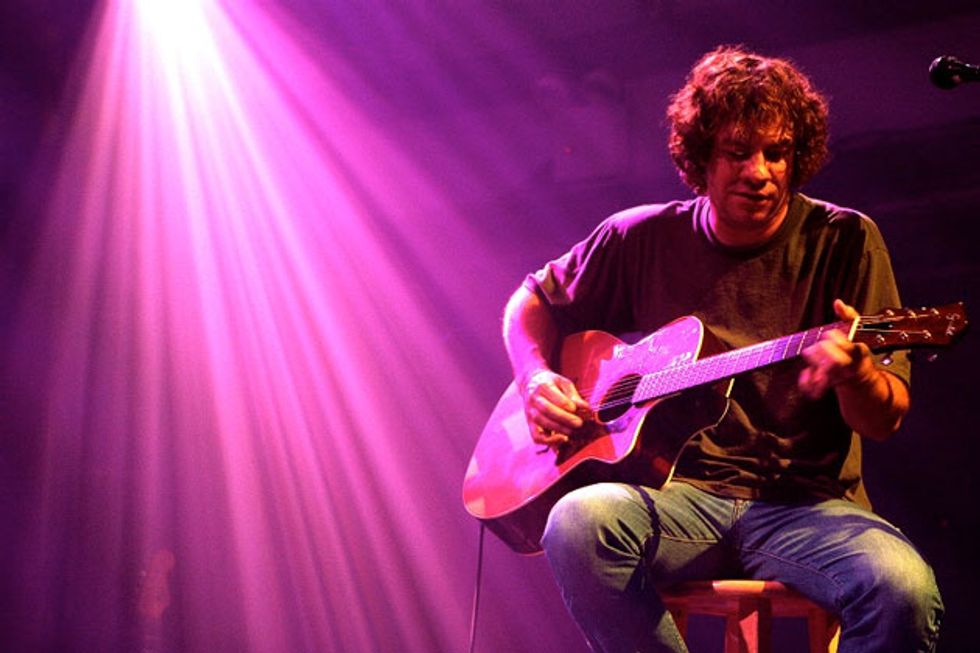





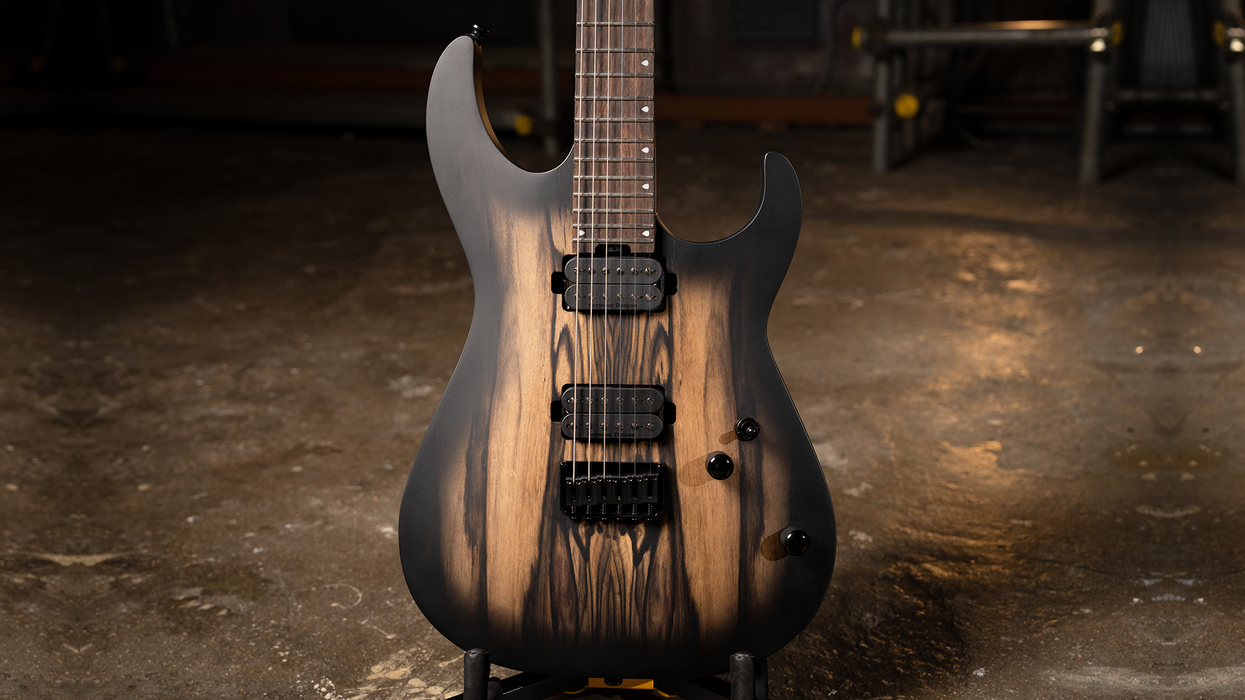

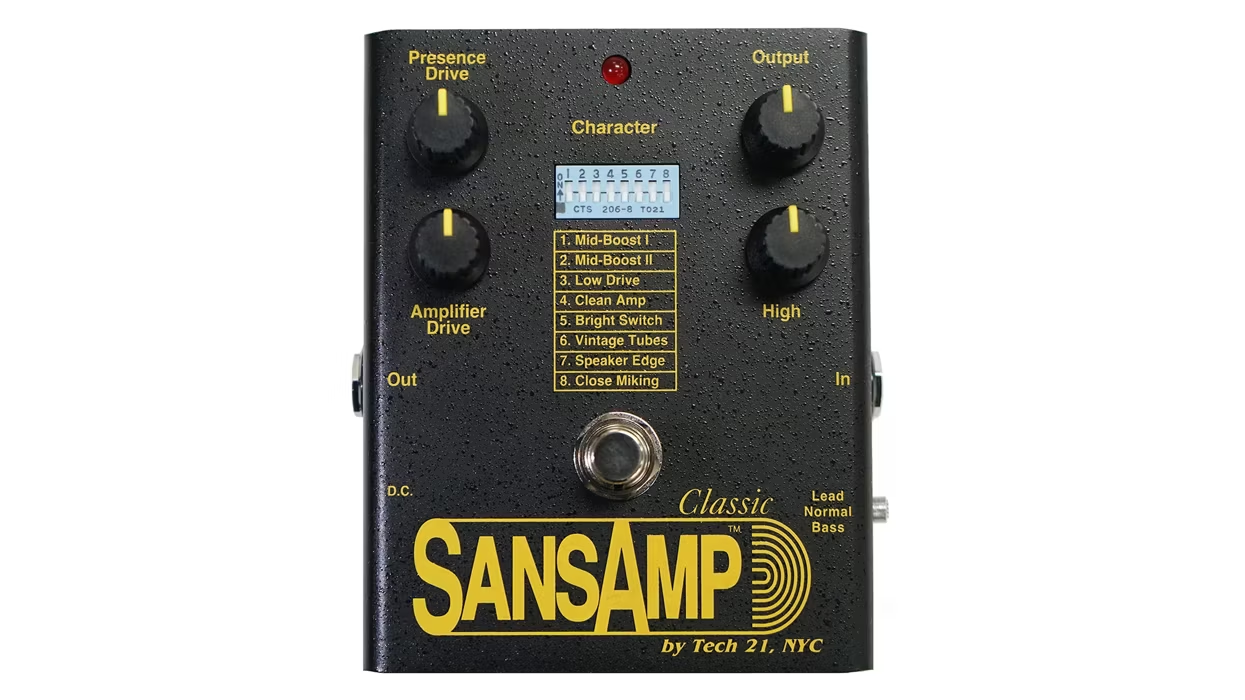
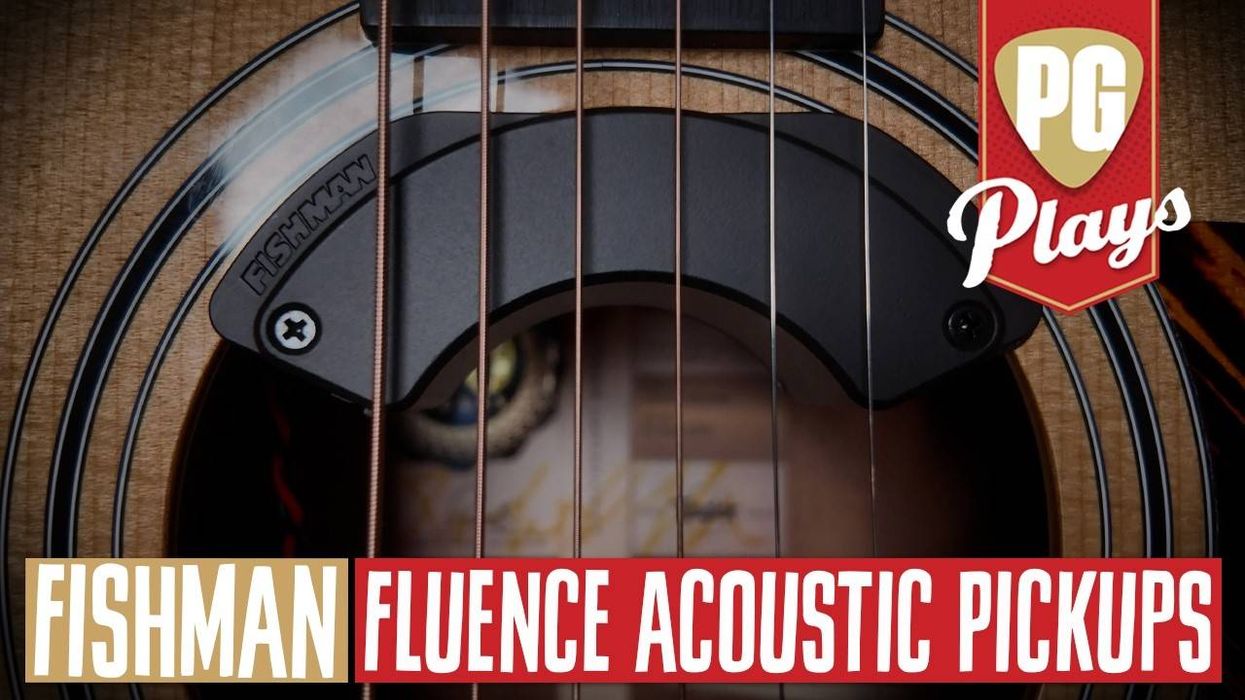
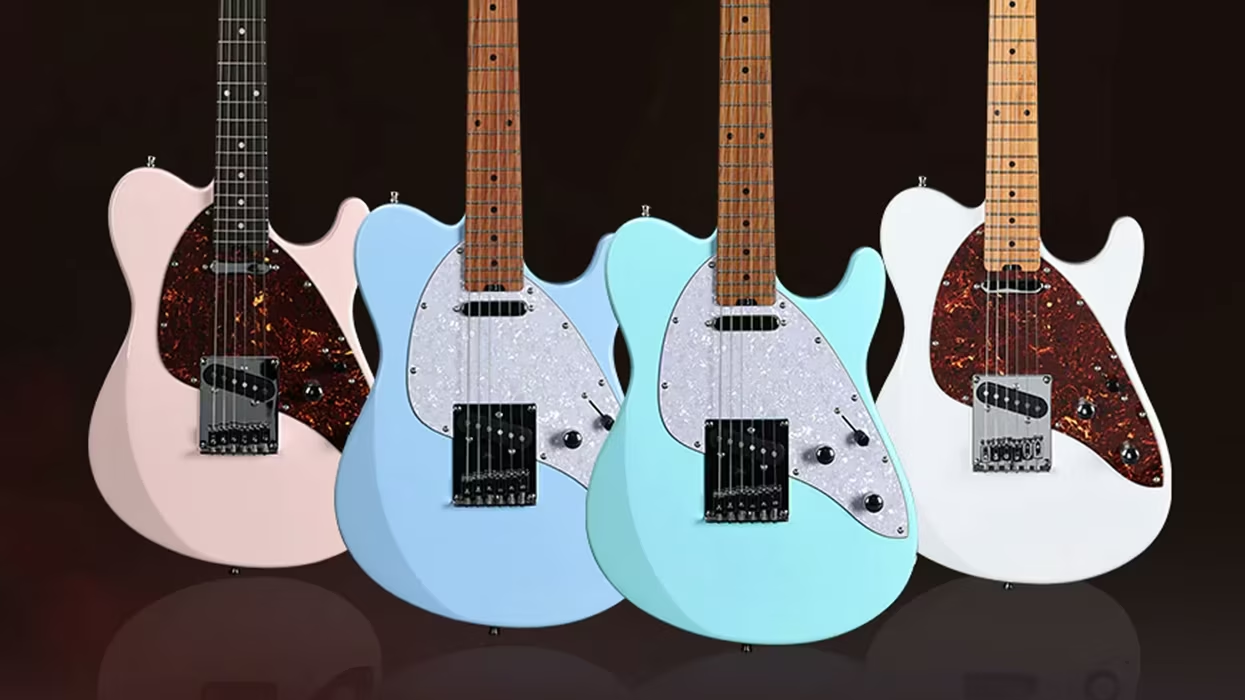
![Rig Rundown: Russian Circles’ Mike Sullivan [2025]](https://www.premierguitar.com/media-library/youtube.jpg?id=62303631&width=1245&height=700&quality=70&coordinates=0%2C0%2C0%2C0)










![Rig Rundown: AFI [2025]](https://www.premierguitar.com/media-library/youtube.jpg?id=62064741&width=1245&height=700&quality=70&coordinates=0%2C0%2C0%2C0)




















 Zach loves his Sovtek Mig 60 head, which he plays through a cab he built himself at a pipe-organ shop in Denver. Every glue joint is lined with thin leather for maximum air tightness, and it’s stocked with Celestion G12M Greenback speakers.
Zach loves his Sovtek Mig 60 head, which he plays through a cab he built himself at a pipe-organ shop in Denver. Every glue joint is lined with thin leather for maximum air tightness, and it’s stocked with Celestion G12M Greenback speakers.











